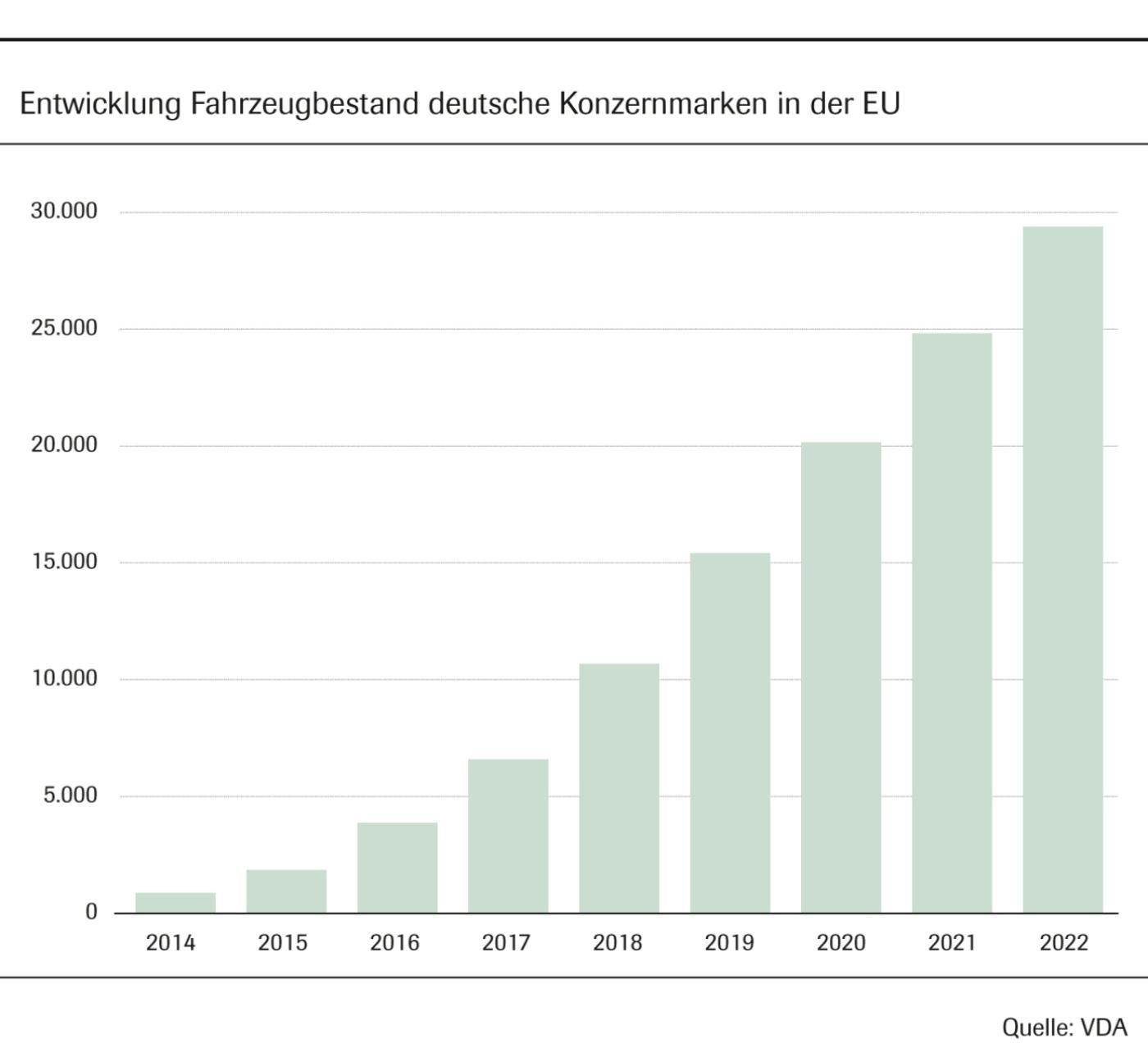
Emission reduction
AdBlue®
With AdBlue®, the pollutant emissions – especially nitrogen oxide – of diesel vehicles can be reduced. What you need to know.
Essential component of a highly efficient and clean drive concept
Since September 1, 2014, the Euro 6 standard – which has been binding for all newly registered vehicles since September 1, 2015 – has been in force throughout Europe for the type testing of new passenger cars. In addition to the Euro 6b emissions standard, Real-Driving Emissions (RDE) legislation is currently being worked on as part of a Euro 6c standard. In accordance with the proposal of the EU Commission, the RDE regulation came into force for new models as of September 2017 and for all new vehicles one year later.
RDE legislation, particularly in terms of nitrogen oxide emissions, is considered to be the biggest challenge for diesel vehicles since EU emission standards were introduced. Alongside the further reduction of raw emissions, for almost a decade now two systems have been proving their worth in reducing nitrogen oxide, depending on vehicle weight and engine: The NOx storage catalyst (NSC or LNT) and the selective catalytic reduction, or SCR for short.
With SCR technology, the watery urea solution AdBlue® is introduced into the exhaust gas stream via the injection technology. Ammonia released downstream in the SCR catalytic converter converts up to 80% of the nitrogen oxide (NOx) into harmless nitrogen (N₂) and water (H₂O). With the NOx after-treatment, the diesel models equipped in this way meet the values of the Euro 6 emission standard. AdBlue® is an essential part of this highly efficient and clean drive concept. SCR technology and AdBlue® have laid the foundation for reducing pollutant emissions – especially nitrogen oxide – in diesel-powered commercial vehicles.
The proportion of SCR models has increased sharply
In heavy vehicles, AdBlue® has proven and established itself as an effective solution for the after-treatment of exhaust gases. For passenger cars with a diesel engine, the time has now also come for AdBlue®, because diesel cars that meet the Euro 6 emission standard are, to a considerable extent, equipped with an SCR system.
AdBlue® consumption depends on the weight of the vehicle, and the individual driving style. A passenger car will consume an average of around 1.5 liters of AdBlue® per 1,000 kilometers.

AdBlue® is already available at gas stations and dealers throughout Europe
As vehicle density increases, convenient AdBlue® dispensers are also being installed at gas stations in Europe. The petroleum and automotive industries must work closely together to establish a Europe-wide network for passenger cars. A number of truck stops are currently installing AdBlue® at their filling stations. In cooperation with German vehicle manufacturers, Shell is testing modern AdBlue® filling stations. The initial results are being reviewed for the further improvement of filling station technology. Demand will show where further pumps are called for. In the future, a map along the lines of the website findadblue.com will show drivers of modern diesel vehicles with SCR systems where they can refuel AdBlue®. Drivers will thus be able to conveniently locate all the relevant filling stationsfrom the updated information on available pumps. Navigators and mobile applications will also play their part in showing future AdBlue® customers the way to the next purchasing point.
Notes on AdBlue®
Around the world, the demands for reducing the emissions of commercial vehicles and passenger cars are increasing. SCR systems (SCR is short for "selective catalytic reduction") use the chemical synthesis product urea AUS 32 (AdBlue), thus reducing the NOx exhaust gases. In view of the worldwide distribution of urea AUS 32, the German Association of the Automotive Industry (VDA) has registered the brand "AdBlue" in all relevant automotive markets. With AdBlue, the automotive industry can thus contribute to further emission reductions around the world.
AdBlue® – globally registered trademark of the VDA
AdBlue® is used worldwide for the purification of motor vehicle exhaust emissions. The product is a clear, non-toxic urea solution (AUS 32), and its use is both safe and environmentally friendly. AdBlue® is stored separately in proximity of the diesel tank; it is not added to the diesel fuel.
The quality of AdBlue® (urea AUS 32) is extremely important for its trouble-free use in motor vehicles, so the requirements are set out in the ISO Standards 22241-1 to 4. These standards must be observed without exception by all licensees of the VDA. To obtain a license from the VDA, urea manufacturers are obligated to first apply to the VDA-QMC for a quality audit of their production plant and distribution system (see info flyer on this website).
AdBlue® is a registered trademark of the VDA and is provided, under license, above all by vehicle manufacturers, suppliers, and companies in the chemical and the petroleum industries. The brand AdBlue® is used for, among other things, motor vehicles, automotive parts, in operating instructions of motor vehicles, and for urea AUS 32.
Further information, in particular regarding the licensing conditions, can be obtained from the Legal Department (Hannah Siebmann, Mail: [email protected], Phone: +49 30 897 842- 263).
Worldwide availability of AdBlue®
Together with its licensees, the VDA is striving to make AdBlue® (urea AUS 32) available worldwide. The AdBlue® brand is therefore registered or in the process of being registered in all relevant automotive markets around the world. This enables VDA licensees to market their products and services with this brand.
Technical significance of AdBlue®
AdBlue® is used in a modern pollutant control system called "selective catalytic reduction" (SCR). In SCR systems, AdBlue® reacts with the NOx exhaust emissions to produce water and nitrogen. NOx is the short form for the nitrogen oxide gases produced during the combustion process in diesel engines, and that are reduced by SCR technology.
AdBlue® is made from a chemical dissolved in pure water – "urea" (also called carbamide). Urea is a synthetic product generally derived from natural gas and used in commercial fertilizers, plastics, and cosmetics. AdBlue® is not made from recycled agricultural products.
It is important that there is always a sufficient amount of AdBlue® in the tank. If a motor vehicle with an SCR system is operated without AdBlue®, there is a risk that the complex SCR equipment will be damaged, and the emissions will not comply with legal regulations.
Use of AdBlue® in extreme weather conditions
AdBlue® can be used under all weather conditions within Europe. However, if the temperature of AdBlue® drops below −11 °C, the product freezes. To avoid this, AdBlue® pumps are heated in the Nordic countries and in colder areas. Some SCR trucks have heating systems that ensure the reliable operation of the SCR system even at the lowest temperatures.
Freezing does not cause any damage to AdBlue®, which can therefore be used again once it has thawed.

Law & Compliance
Dr. Ricarda Leffler
Head of Department & In-House Counsel